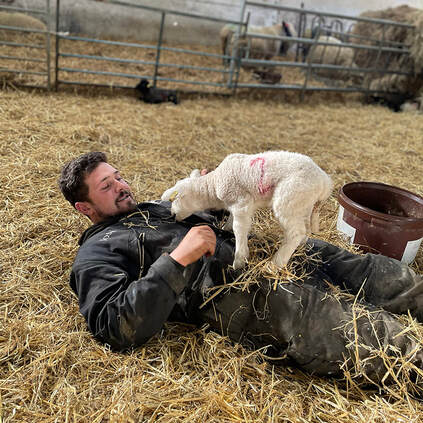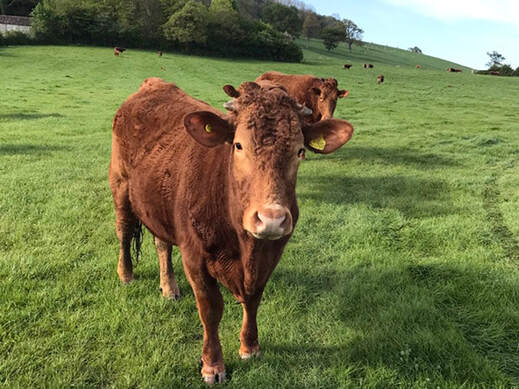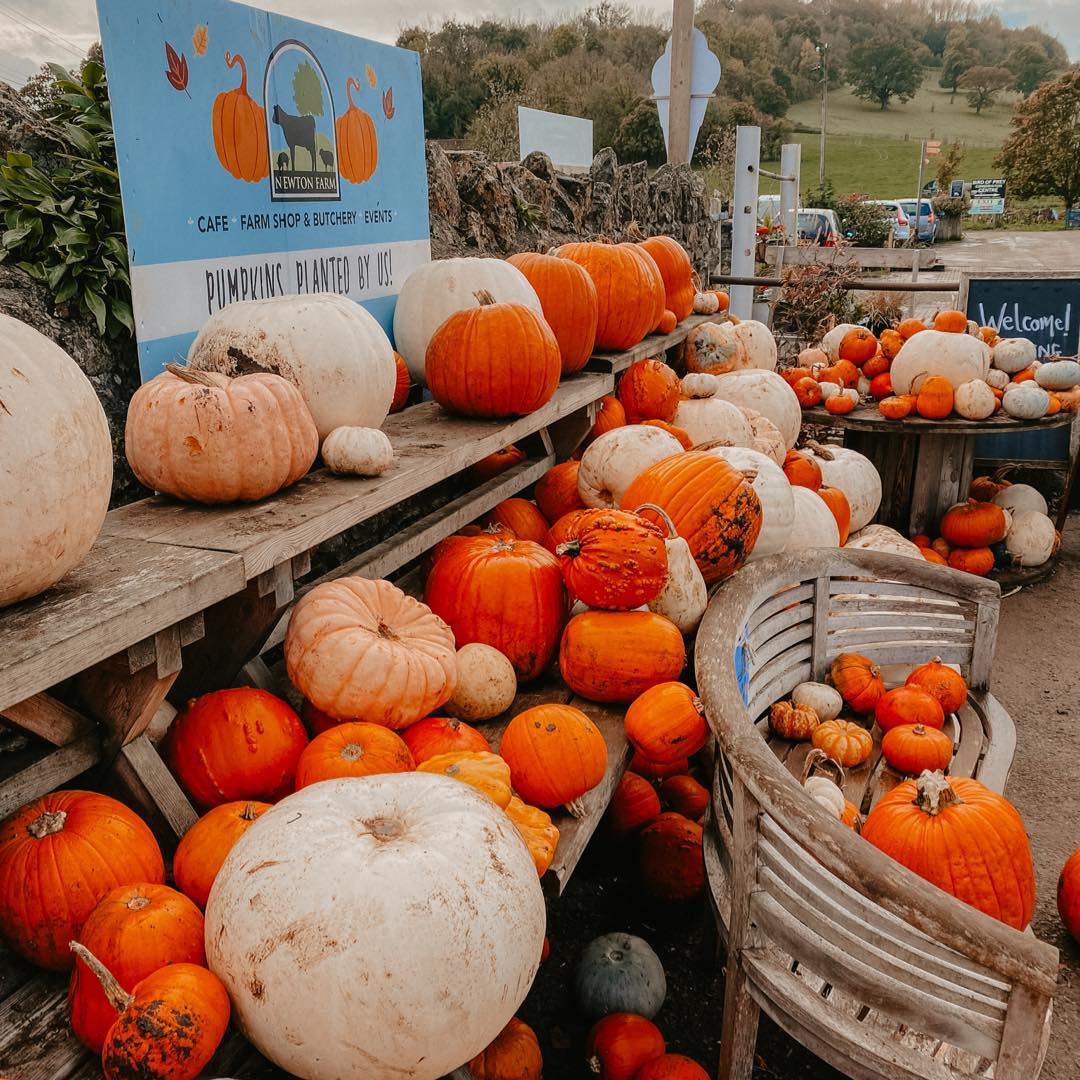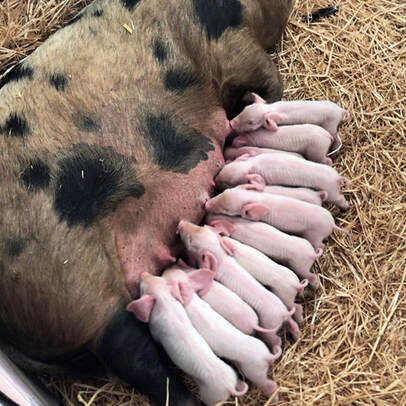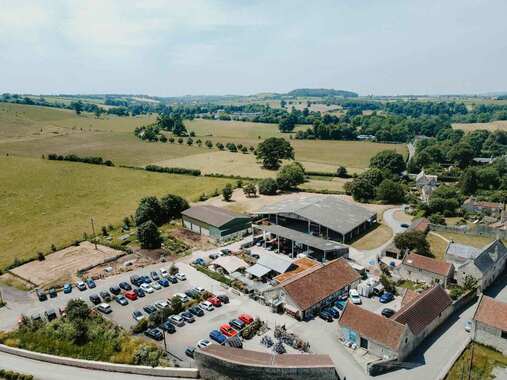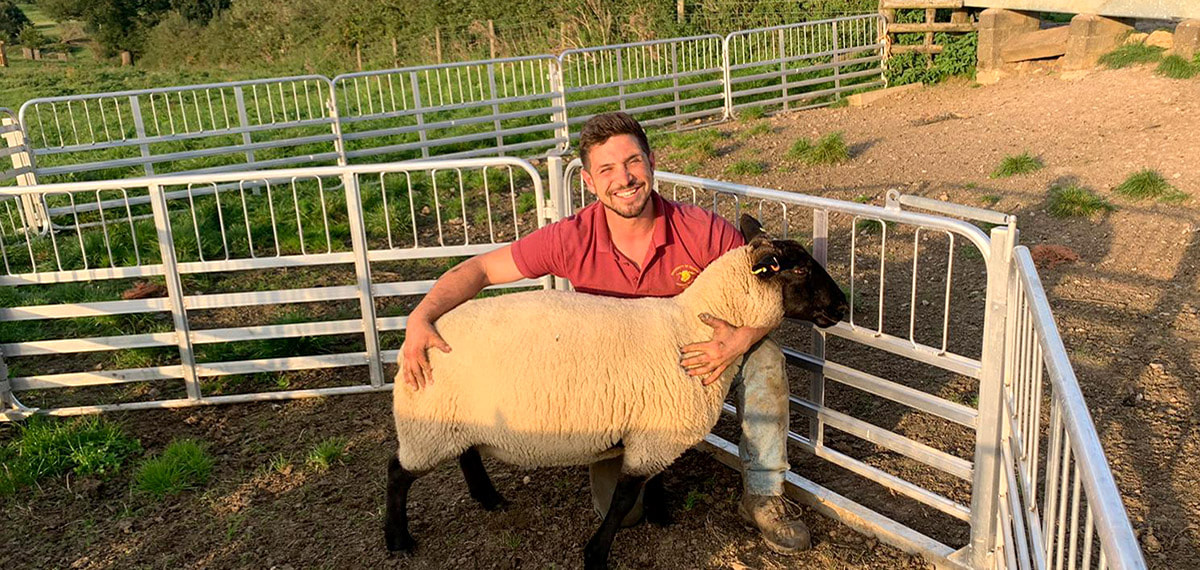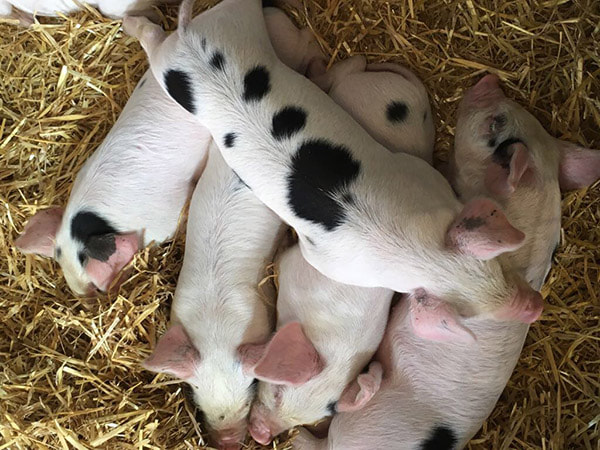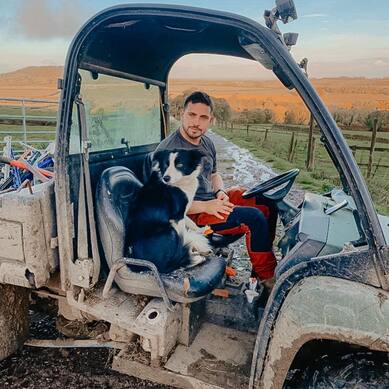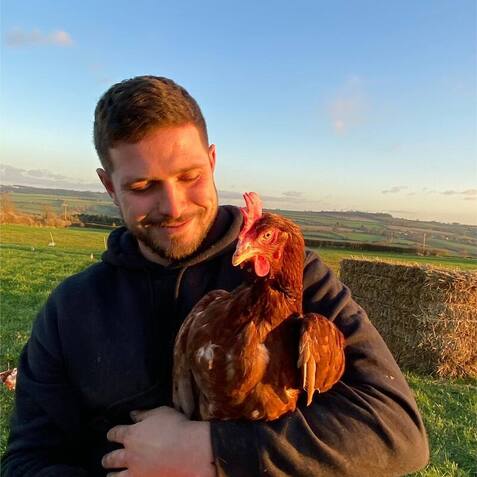We caught up with Josh Gay of Newton’s Farm Shop in Somerset
to hear just how different his day is to ours….
to hear just how different his day is to ours….
Were you always going to be a farmer?
I wanted to be a cowboy first (!) but ever since I was 16, I have wanted to be a farmer. Although I would still be a cowboy on the side, if I could!
What does your farm produce and who do you supply?
We started off as a beef and arable farm when we quit milking cattle in 2000. Now we keep over 300 cattle. 70 spring calving cows and 60 autumn calving cows, as well as all the followers from last year’s calves and the finishers. Most cattle finish between 20-24 months. 70{650a267a6dfc0c56292df9f4411de9160c0ac02671db1e1ee03f984da437e88e} is sold through the farm shop.
We started sheep 5 years ago with 90 ewes and now lamb 300 and growing. All lambs finish on the farm and go through the farm shop.
We also farrow 16-18 sows and finish around 200 pigs a year. All the pork is soya free and farrow crate free. The pigs spend as much of their lives outside as possible.
We keep around 200 free-range laying hens that move around the fields in a homemade arch on sleds, dragged by the tractor.
We grow 100,000 pumpkins for a “pick your own” pumpkin patch on the doorstep of Bath.
2 years ago, we started growing veg to sell at our shop. We started with courgettes, butternut squash, sweet corn and peas. This year, we tried our hand at more than 20 different veg with varying success.
2 years ago, we started growing veg to sell at our shop. We started with courgettes, butternut squash, sweet corn and peas. This year, we tried our hand at more than 20 different veg with varying success.
We also have 200ha of combinable crops – wheat, triticale, peas, beans, maize and OSR, over 90{650a267a6dfc0c56292df9f4411de9160c0ac02671db1e1ee03f984da437e88e} of which is without any cultivation or tillage. We use multispecies cover crops on spring sown blocks that work to improve the soil. The majority of this is sold into the markets but some of the cereals are fed to the pigs and the maize to the finishing cattle, although they eat grass for 90{650a267a6dfc0c56292df9f4411de9160c0ac02671db1e1ee03f984da437e88e} of their lives.
How many people do you have helping you on the farm?
There are normally 4 of us working on the farm but we have only been a team of 3 since May. We are looking for a 4th employee, someone who will fit in well with our small team and with a similar ethos.
How does your day begin? What does your typical day look like?
Each of my days is slightly different, changing with the seasons. Every day starts with someone feeding the pigs and cattle. Often it involves checking the livestock and rectifying any problems such as broken troughs or pipes. During the summer and autumn months, the days are often filled with driving tractors and doing various field tasks. During the winter months, days are spent moving sheep across arable fields of wheat and triticale, grazing it to remove the disease and shifting the autumn calving cattle and their calves across the cover crops and bale grazing.
Newton Farm Shop and Café
What do you love about your job?
Everything! What’s not to love! The best part of my job is having a goal and working towards it, whether that’s by improving the scanning percentage of the sheep, condensing the calving blocks, eliminating the use of wormers in my livestock or using less chemicals, fuel and fertiliser to produce the same quantity of grain. These goals are often rarely achieved and shift slightly each time you get close but the idea of producing food in this way really excites me and drives me to keep going every day.
What do you hate about your job?
Social media and all media’s perception of farmers. I love what I do and am proud to do it. I am proud to produce British food in a way that not only enhances and promotes the environment but also improves air quality, biodiversity and water quality.
How big a part does the weather play in changing your daily routine?
Extreme weathers can have huge effects on my daily routine, but small changes don’t have huge effects. Heavy rains can cause flooding and delays on cultivated ground but the more years we have under our direct drilling and cover crop belt, the more our ground becomes resilient to it and lets us back out quicker to finish the tasks in hand.
Drought had affected us this summer, but thanks to our mob grazing system and holistic approach, we managed to withstand it and only fed 3 bales of silage or hay during the season. During the winter, heavy rains can affect my outdoor wintering of 50-60 cow calf pairs. This is because the forage loses quality and the cattle utilise less of it, so we must move the cattle more often, sometimes twice a day, or give them a bigger area to run back across to keep them happy and avoid wastage. Regardless of this, I would still prefer to outwinter these cattle because the calves are much healthier and our antibiotic use against pneumonia fell significantly by keeping the calves outside on well ventilated fields.
Drought had affected us this summer, but thanks to our mob grazing system and holistic approach, we managed to withstand it and only fed 3 bales of silage or hay during the season. During the winter, heavy rains can affect my outdoor wintering of 50-60 cow calf pairs. This is because the forage loses quality and the cattle utilise less of it, so we must move the cattle more often, sometimes twice a day, or give them a bigger area to run back across to keep them happy and avoid wastage. Regardless of this, I would still prefer to outwinter these cattle because the calves are much healthier and our antibiotic use against pneumonia fell significantly by keeping the calves outside on well ventilated fields.
What are the biggest challenges facing you right now?
Labour supply and rising costs. Two very common issues in the industry.
What gives you the most satisfaction in/about your job?
Things going exactly as planned, heifers calving without assistance, ewe lambs taking straight to their lambs without any help. Calves and lambs straight up to suckle. The simplest satisfactions are the most enjoyable.
What’s the best purchase you ever made to make your job easier?
Auto steer/guidance in the tractor means exact drill widths every time, no triangles to fill in mowing (or cultivating), no overlap and no wasted fuel!
What skills do you need to be a successful farmer?
Grit and a positive attitude. Also, I think you need to be able to take things as they come and not get worked up about small things. For example, I can’t control the weather and it’s one of the biggest influences on how my year can go, so why get worked up about it? I just focus on what I can control instead. This mantra has helped me put into perspective what’s important to me and the business, what can be worked out another time, or what can be ignored.
Do you ever take a break and, if so, what do you do to relax?
I love an activity holiday, like snowboarding. Doing nothing isn’t really my thing!
What’s your favourite time of year?
Spring and autumn! Lots to do and the farm looks most beautiful at these times of year.
What are your hopes for the future of your farm?
I hope to reduce the reliance on inputs and continue improving the health and productivity of my livestock. I really want to make the farm profitable before any subsidy or environmental payments by continuing to trust in the regenerative approach to farming. I hope to continue building a farm that attracts people to keep purchasing our produce, not just because of the taste, but also because of all the extra environmental benefits it brings to our local environment – something they can see when they walk our footpaths and permissive paths.
I hope to create a farm that inspires the next generation of my family to follow in my footsteps, to see farming as a good way of producing a living.
I hope to create a farm that inspires the next generation of my family to follow in my footsteps, to see farming as a good way of producing a living.
A massive thank you to Josh for taking the time to answer all our questions.
Newton Farm Shop
Newton St Loe
Bath
BA2 9BT
01225 873707
Email
Website
Mon-Sat 9-5, Sun 9-4
Local deliveries & contactless collections available
Newton St Loe
Bath
BA2 9BT
01225 873707
Website
Mon-Sat 9-5, Sun 9-4
Local deliveries & contactless collections available
